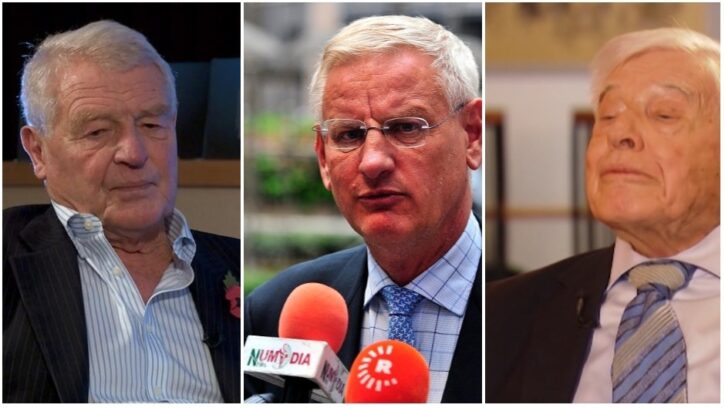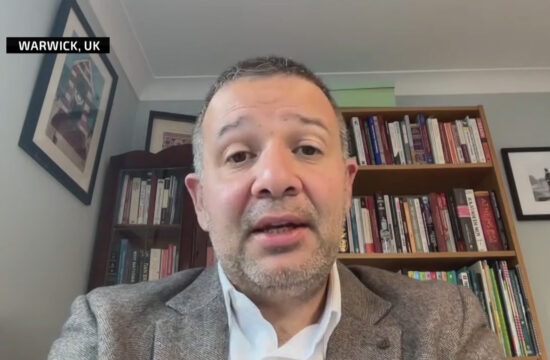
Former top international officials in Bosnia and Herzegovina sent a letter to the European Union (EU) foreign ministers, demanding that Croatia is asked not to interfere with Bosnia's internal affairs. They want the EU ministers to convey “a clear message” at its December session.
“As former High Representatives to Bosnia and Herzegovina, we are deeply concerned by Croatia's continued meddling in the political affairs of Bosnia and Herzegovina,” said the letter that former envoys sent to EU's head of diplomacy Federica Mogherini and foreign ministers of the EU member states.
Paddy Ashdown, Christian Schwarz-Schilling and Carl Bildt expressed a concern over the stance some of the Croatian officials demonstrated towards election of social-democrat Zeljko Komsic to the Presidency of Bosnia and Herzegovina.
Election of the Croat member in the state Presidency, was strongly objected by a Bosnian Croat leader, Dragan Covic, and his conservative party, the Croat Democratic Union (HDZ BiH). They claimed the new Croat member in the Presidency was illegitimate and that he was elected owing mostly to the votes of other major ethnic group, the Bosniaks.
To ensure that each people in Bosnia elect their own legitimate representatives, they said, it was necessary to implement a court decision in ‘Ljubic’ case.
The way HDZ BiH and HDZ-led authorities of the neighbouring Croatia interpret the issue is wrong, the former High Representatives claim.
A Constitutional Court decision in ‘Ljubic case’ from 2016, concerning the Election Law, they stressed, does not refer to the election of the Presidency but to the Parliament of the Federation (FBiH) entity.
“The misinformed narrative about the ‘Ljubić case’ is being used as an argument against the legitimately elected Croat member of the Bosnia and Herzegovina presidency, Zeljko Komsic,” said the letter. “The HDZ representatives from Croatia, together with Dragan Covic, the leader of HDZ BIH, claim that the election of Komsic was illegitimate and unconstitutional. Yet neither the Constitution nor the Election Law of Bosnia and Herzegovina state that presidency members must be elected by members of their ‘own group’”.
International community's High Representative in Bosnia is in charge of overseeing the implementation of the Dayton Peace Agreement, a peace treaty that ended the 1992-95 Bosnian war and established government structure in the country.
The High Representative is the final authority to interpret the Bosnia's Constitution, set forth as Annex 4 in the Dayton peace treaty.
The former envoys recalled that Dragan Covic himself has been elected under the existing electoral rules as the representative of Bosnian Croats to the state Presidency on two previous occasions, serving in the terms 2002- 2005 and 2014-2018.
“Therefore, it is of utmost importance that at the December meeting of the EU’s Foreign Affairs Council a clear message is sent to Bosnia and Herzegovina's political parties and to those interfering from outside the country,” they said.
According to them, the message should say that any electoral reform should aim to make Bosnia more cohesive and functional rather than dividing it further along ethnic lines, that post-election formation of government is of the foremost priority, that the country's borders are inviolable, and, finally, that Croatia should not interfere in the internal affairs of Bosnia and Herzegovina.
“We also urge the European Commission to publish its opinion on Bosnia and Herzegovina’s membership application as soon as possible. The Commission’s opinion should stress the importance of the rights of all citizens as individuals, prompting Bosnia and Herzegovina's politicians to work on advancing these rights to advance the EU accession process,” they concluded.




